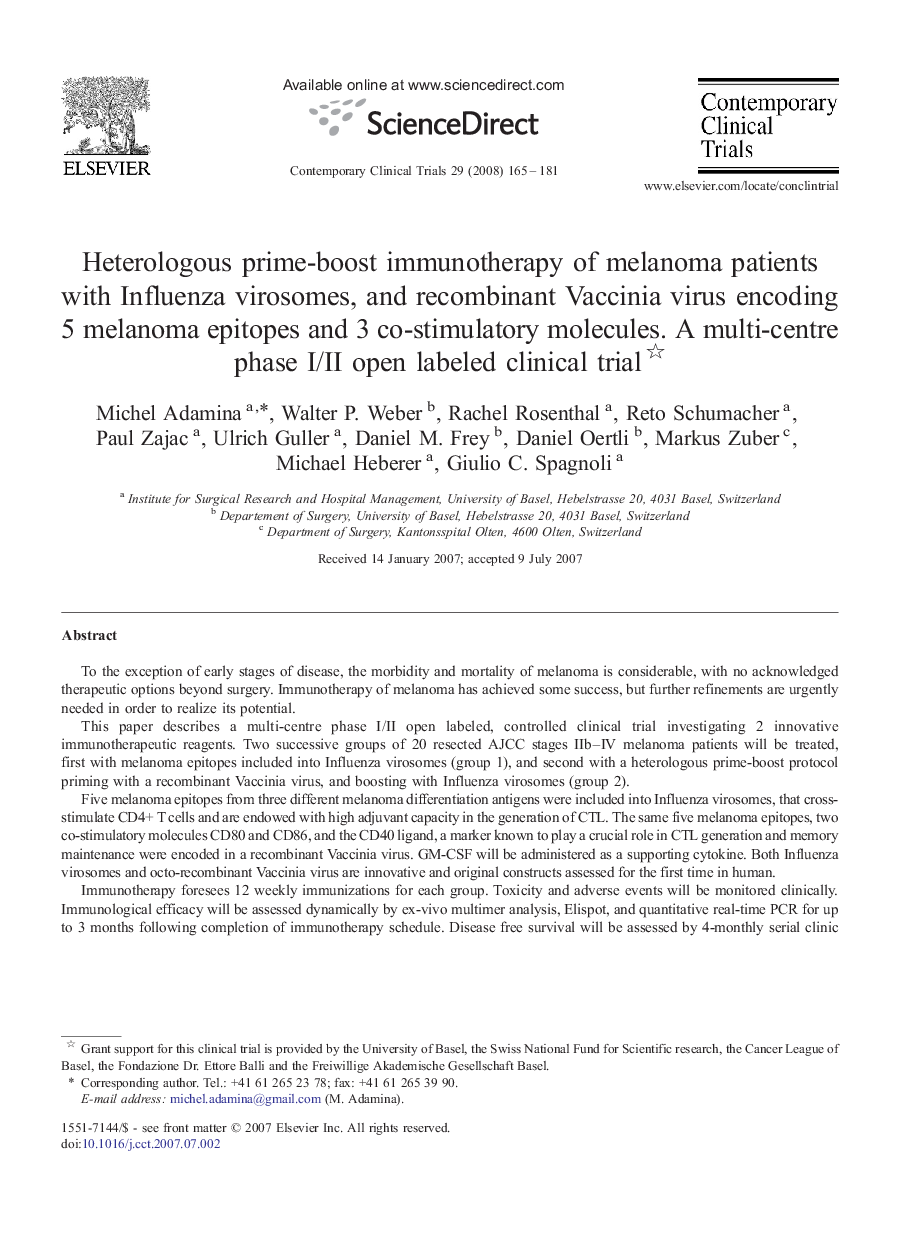| کد مقاله | کد نشریه | سال انتشار | مقاله انگلیسی | نسخه تمام متن |
|---|---|---|---|---|
| 3463401 | 1231554 | 2008 | 17 صفحه PDF | دانلود رایگان |

To the exception of early stages of disease, the morbidity and mortality of melanoma is considerable, with no acknowledged therapeutic options beyond surgery. Immunotherapy of melanoma has achieved some success, but further refinements are urgently needed in order to realize its potential.This paper describes a multi-centre phase I/II open labeled, controlled clinical trial investigating 2 innovative immunotherapeutic reagents. Two successive groups of 20 resected AJCC stages IIb–IV melanoma patients will be treated, first with melanoma epitopes included into Influenza virosomes (group 1), and second with a heterologous prime-boost protocol priming with a recombinant Vaccinia virus, and boosting with Influenza virosomes (group 2).Five melanoma epitopes from three different melanoma differentiation antigens were included into Influenza virosomes, that cross-stimulate CD4+ T cells and are endowed with high adjuvant capacity in the generation of CTL. The same five melanoma epitopes, two co-stimulatory molecules CD80 and CD86, and the CD40 ligand, a marker known to play a crucial role in CTL generation and memory maintenance were encoded in a recombinant Vaccinia virus. GM-CSF will be administered as a supporting cytokine. Both Influenza virosomes and octo-recombinant Vaccinia virus are innovative and original constructs assessed for the first time in human.Immunotherapy foresees 12 weekly immunizations for each group. Toxicity and adverse events will be monitored clinically. Immunological efficacy will be assessed dynamically by ex-vivo multimer analysis, Elispot, and quantitative real-time PCR for up to 3 months following completion of immunotherapy schedule. Disease free survival will be assessed by 4-monthly serial clinic visits, including physical and FDG-PET examinations, for a follow-up time of 2 years. Quality of life will be assessed with a dedicated FACT–BRM 4 questionnaire.
Journal: Contemporary Clinical Trials - Volume 29, Issue 2, March 2008, Pages 165–181